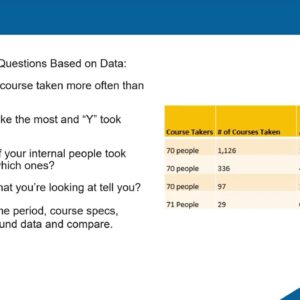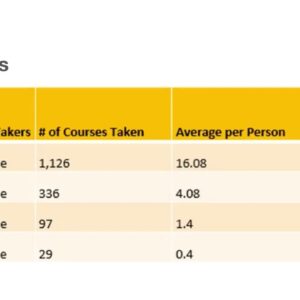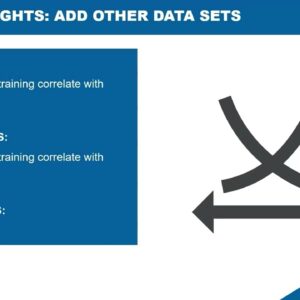Explore this five-part series of short videos and have Jim Nowakowski show you the ins and outs of data navigation! Questions afterward? Email Jim at jim@interlinegroup.com, or call him at 847-358-4848.
Each of these videos in the five part series explores a crucial angle on data navigation. There’s the process, and then developing the natural curiosity of challenging the data you’re looking at. The Insights sections will give you additional ways to enhance your knowledge! Enjoy and as always, thanks for watching.
 |
The ProcessIn Part One of this series, Jim discusses datasets, and erasing your “blackboard” – in other words, approaching your data without preconceived notions. He uses real-life examples of why and how this part of the process works. |
|
 |
QuestioningIn Part Two of this series, Jim explores the data and how asking questions of the dataset leads to knowledge. For example, why was one course taken more than another? Were internal or external people taking these courses? It’s important to look behind the scenes of the data. |
|
 |
Questioning Part 2In Part Three of this series, Jim continues his investigations of why questions help produce knowledge from your dataset. He uses a chart that is divided into Quartiles, a common research tool that gives new life to a dataset and leads to asking more questions which, in turn, leads to more knowledge. |
|
 |
Gathering InsightsIn Part Four of this series, Jim shows you how to collect insights from your questions and analysis. Using a technique called RFM (Recency Frequency Monetary Value), you’ll hear how to sort a dataset three different ways to extract additional knowledge about your audience. Then, how to make the phone your “secret weapon.” |
|
 |
Gathering Insights Part 2In Part Five of this series, Jim discusses the biggest problem marketers face: diverse systems within a company that don’t “talk” to each other. He addresses this problem with suggestions on helping you solve it, and wraps the discussion up with how to overlay additional data from these systems (i.e., your sales data) for more profound insights. |